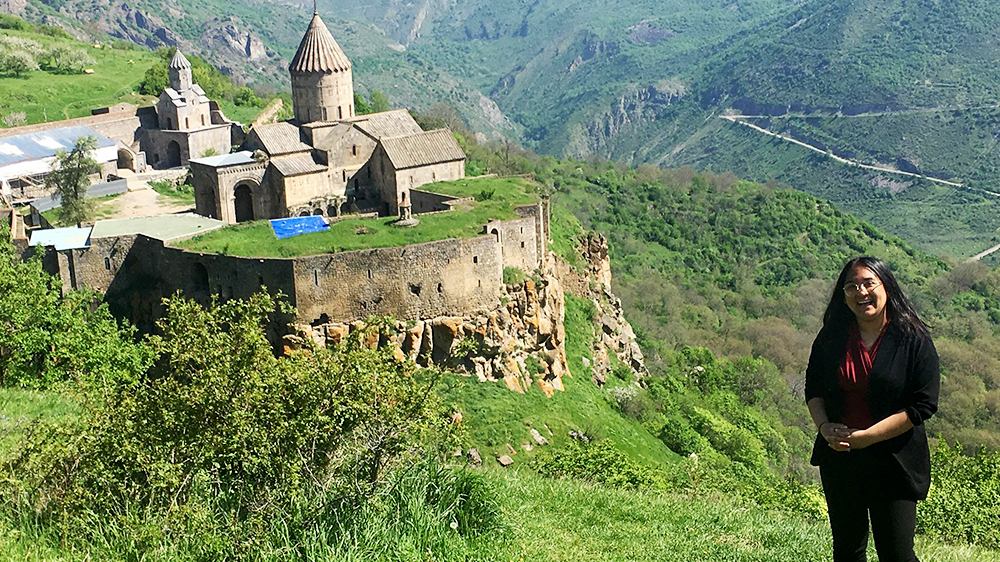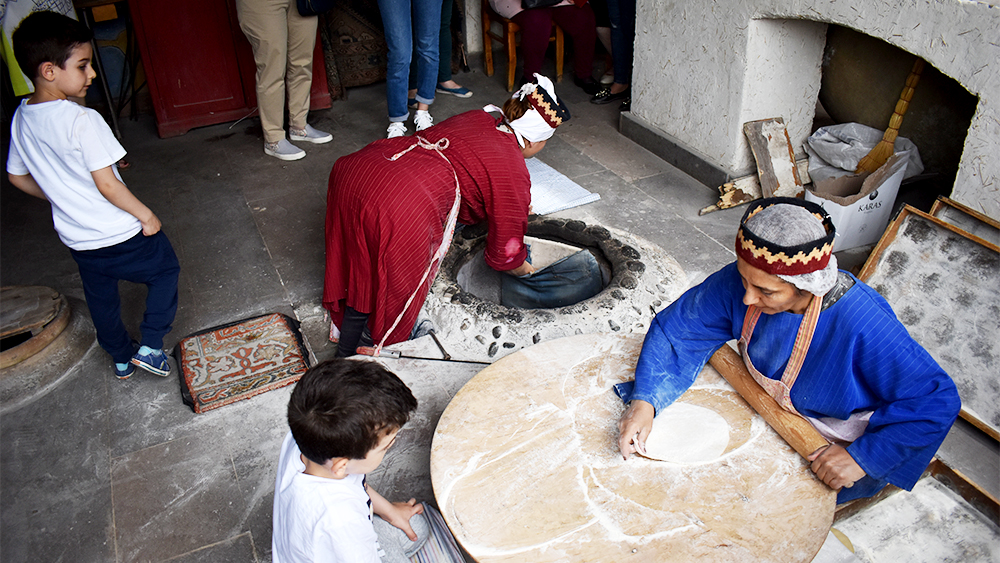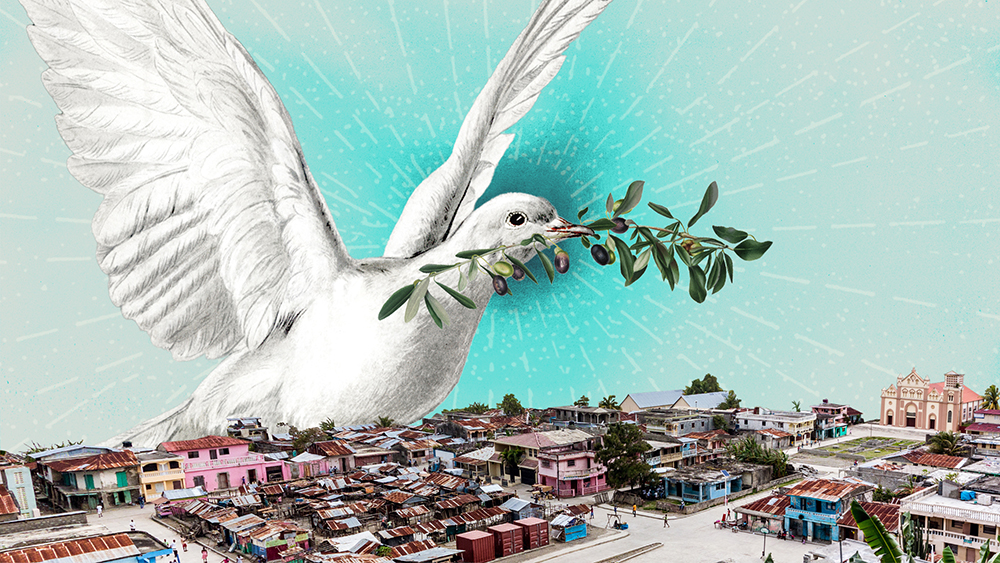
By Bethany Romano, MBA’17
When a catastrophic earthquake devastated his home country of Haiti in 2010, killing hundreds of thousands and displacing many others, Roddy Denor, MA SID/MA COEX’22, waited for much-needed help to come.
“The Haitian government couldn’t respond adequately, so I assumed the international community would help us. But as the years passed, I saw it become a fiasco. All these NGOs landed outside of Port-au-Prince. They spent millions on questionable and poorly-managed projects but didn’t end up addressing the needs of the population. There was one case in particular where the American Red Cross raised half a billion dollars and claimed they provided homes to more than 130,000 people. They only built six permanent homes.”
NGOs aren’t new to Haiti. Growing up, Denor saw a near-constant stream of development organizations, missionaries and programs, each with their own goals and predetermined ideas of how to “fix” his country. “Haiti is like the Republic of NGOs, and it’s getting worse every year,” he says. “Why not ask people, ‘What do you need?’ NGOs come and go, but the people have to stay. They have to live with the impact of those projects.”
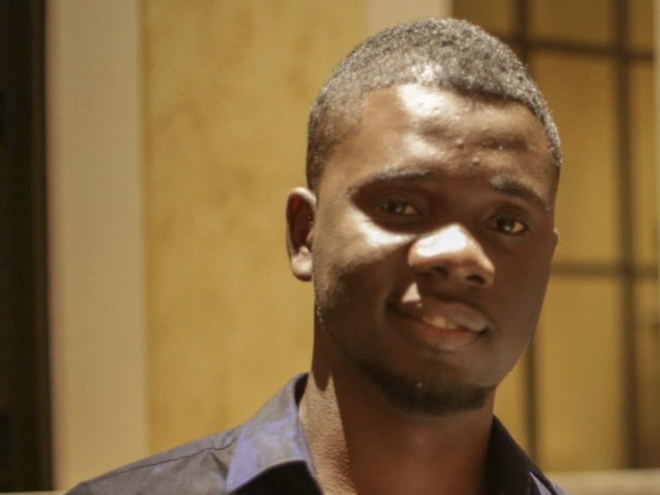
Today as a student at the Heller School, Denor is having critical discussions about the ethics and practice of international development and peacebuilding.
How much control should donors have over the projects they fund? How do identity, privilege and biases influence one’s ability to work in cross-cultural contexts? When resources are limited, should you try to tackle the root causes of age-old conflicts, or the day-to-day problems that those conflicts generate?
The answers aren’t straightforward, but through conversations with classmates and professors, each with their own experiences working for international NGOs, the Peace Corps, or in community organizations in their home countries, Denor and his peers are exploring these complex issues.
Shining a light on uncomfortable truths
In a modern-day international development program, just learning about the mechanics of planning, implementation, monitoring and evaluation isn’t enough. Heller students turn to the classroom to unpack their experiences abroad and think critically about contributing to a more just future. And Heller faculty are eager to promote these conversations—even when it means shining a light on sometimes uncomfortable truths about their own field.
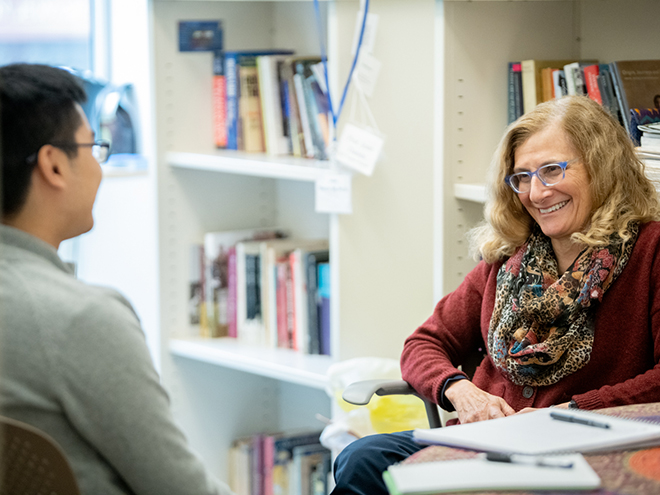
Professor Joan Dassin ’69, director of the MA in Sustainable International Development (SID) program, introduces her students to the “post-development” movement. This radical school of thought, which rose in Latin America in the 1990s, posits that the international development “industry” of nonprofits and international aid agencies often does more harm than good.
Her goal is to facilitate deep reflection and constructive classroom debates, and provide students with analytical and conceptual tools to critically assess their work in development. “How could we possibly bury our heads in the sand and say that development projects always have positive results? That’s ignoring both history and outcomes,” she says.
“The ethical, moral and practical dilemmas are real. That doesn’t mean we need to stop our work—it means we need to ask hard questions about the whole development enterprise, especially who benefits from programs and projects.”
Methi Satyanarayana, MA SID’22, saw that first-hand as a Peace Corps Volunteer in rural Armenia.
One day, a French woman arrived in the village where Satyanarayana was serving with a hiking backpack and little else. She explained she’d come from a nonprofit to complete a project for the local school, and that she wished to film some classes—an unexpected request that made both students and parents uncomfortable.
“The more I dug around, the more it became clear this was her pet project. She had nothing planned, her organization was not actually putting any time, money or effort into this,” says Satyanarayana. The example stuck with her as a reminder that often, well-meaning people and organizations show up to a community with a plan in their minds, without actually knowing much at all about the place or the people.
For Satyanarayana, who was driven to the development field after witnessing vast disparities in her birth country of India, “It has been great to really challenge my own beliefs and really think about my own role as someone working in this field.”
Getting to the root
In Associate Professor Pamina Firchow’s classroom, she urges students in the Conflict Resolution and Coexistence (COEX) program to consider whether an organization is actually building lasting peace by addressing the root causes of conflict, or if it’s just problem-solving issues as they arise. “The way we’re addressing war-torn societies is not sufficient,” she says. “Unfortunately, I think many of the people working in that sector don’t understand the root issues.”
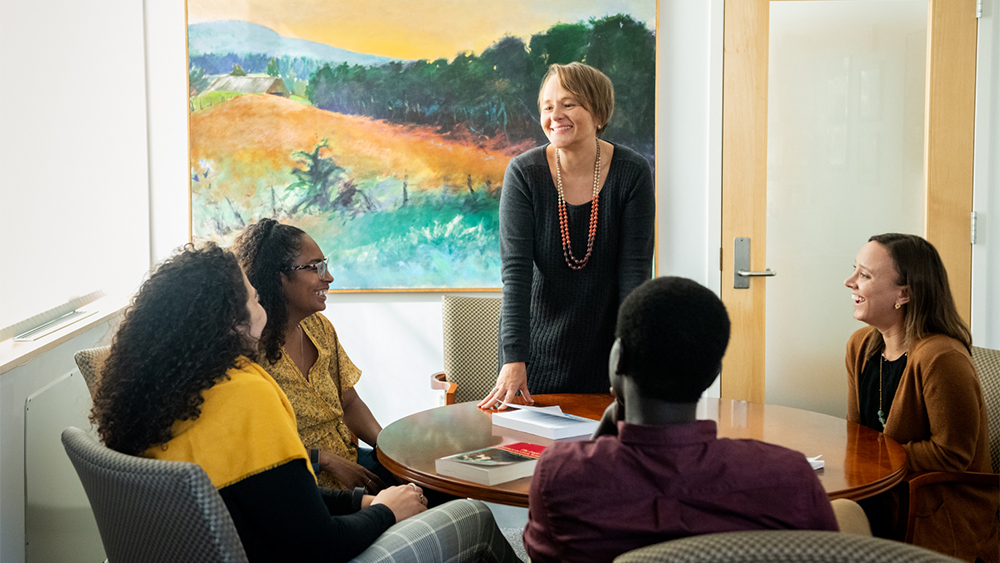
Firchow also pushes her students to examine their own identities and actions, and to think beyond the tenet of “do no harm.”
“I want people to come into this work with their eyes open. The majority of people interested in peacebuilding are very idealistic,” she says. “Of course, that’s wonderful, but it’s not productive if they don’t understand the reality on the ground. My hope is that if they come prepared and understand these challenges, they’ll help to overcome the large-scale inequalities that fuel conflicts.”
The drive to understand these conflicts was what led Angelique Santiago, MS GHPM/MA COEX’22, to Heller. As a Peace Corps volunteer in rural Guatemala, she found herself navigating a long and difficult history of conflict at both the local and international levels.
“I was put in a community that had a lot of long-running ethnic tension, and certain groups had a distrust for the government. The Peace Corps had partnered me with the local Ministry of Education, which in some ways was good because it gave me some credibility, but it also proved to be difficult to be affiliated with a local government representative. The loyalties I was supposed to show were actually harmful to a degree.”
“As a Peace Corps volunteer, you have to try to be neutral, but you’re not really perceived as neutral by the local community. People thought maybe the Peace Corps was part of the U.S. military. Or they would ask, ‘Why are we always the trash of the United States?’”
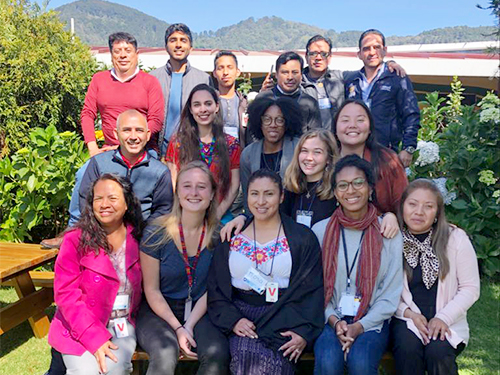
Although Santiago served for just six months before the COVID-19 pandemic triggered the U.S. State Department to evacuate her, these questions stuck with her.
“I want to learn how to navigate these conversations around identity conflicts on the ground, especially as a woman of color in that context, which is not the common narrative,” she says. “Heller classes have given me more of the language to express my experiences and help me conceptualize what’s happening on the ground and what those dynamics actually mean.”
The control group
To think about ethics issues both individually and societally, Associate Professor Rajesh Sampath offers a framework in his ethics of development course.
“Ethics at the micro level is on the level of the practitioner. We have to question our biases and think about our positionality: race, gender, education, etc. We need to pause and consider these things, rather than jumping to conclusions about a given situation—even when we are eager to act, to effect change,” he says. “Ethics at the macro level is on the level of nations and societies: Do we defend Western values, democracy, individual human rights, market capitalism, secularism? And what do we do when those systems are, themselves, oppressive?”
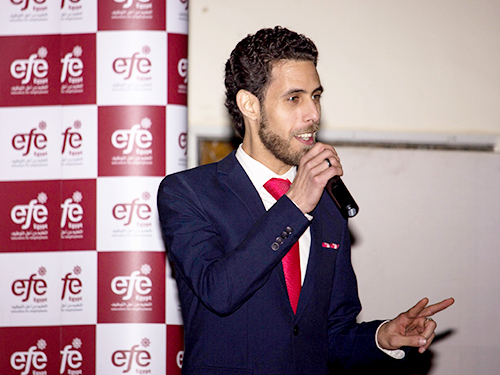
The need to work around an oppressive system is what drove educator Khaled Sakr, MA SID/MA COEX’21, as he built a successful career in Egypt as an employment trainer specializing in emotional intelligence and communication. “Through that work, I got exposed to how much social conditioning Egyptian youth go through,” he says. “You can’t teach whatever you want there, so we kind of hid social awareness and political awareness into this employment training.”
Sakr admits that hiding these messages in his training curriculum was risky. “Egypt is a very authoritarian regime. If we were honest in how we advertise [the training], probably the entire NGO would close and everyone would end up in prison. But you have to decide if you’re okay with doing these things. I came to Heller to learn how to mix peacebuilding strategies with educational studies.”
In addition to ethical concerns around the content and mission of his work, Sakr also encountered power struggles with his funders. “I’ve faced donor restrictions on so many projects,” he says.
“At one point, donors paid us not to teach certain people, so they would be used as a control group in their research. It’s very hard for someone who has worked in education most of their life to not teach people. And especially because we know how useful that training is, and how much it can change someone’s life. But the donors needed a control group. There was this tension between donors’ interests and what we believe is ethically okay for us to do.”
The path forward
For the students, it can feel liberating to talk openly about doubts and concerns they may have carried privately while working in the field. Denor realized his experiences in Haiti were not unique, saying, “It was interesting for me to realize that my generation, my classmates agree something needs to change. These classes focus on what needs to be done to ensure we address the needs of the people we serve.”
These critical conversations push them to rethink their own career paths after they graduate. As Sakr puts it, “I think Heller graduates each year are faced with a choice: am I going to fit into the system, with the problems that we’ve studied, or am I going to start doing something the hard way?”
Dassin argues that there is no single “right” path toward development; it is hotly contested even among scholars. “Our students need to know what those debates are about, so they can find the space where they can be the most effective. If that means working within a large international organization and being conscious of its limitations, or working in a community-based organization and facing different types of challenges, that’s good, too.”
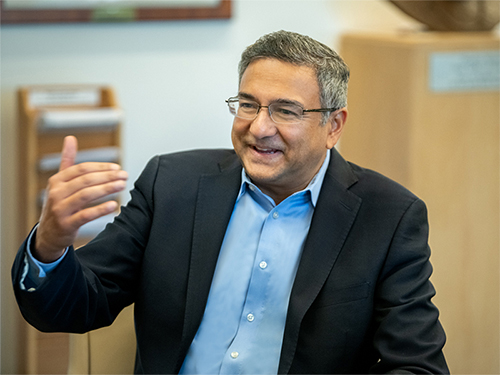
For Sampath, the Heller School’s role in helping to move the ethics debate forward lies in its ability to train the next generation to navigate an increasingly complex world with greater finesse. “Higher education has to fulfill its responsibilities to teach and train future professionals, but we’re also living in times of profound crisis: climate change; racial, gender, sexuality, and disability injustice; structural inequality and concentrations of wealth and power. We have to find new voices, new people, that are challenging the status quo,” he says.
In addition to charting their own career paths, the students are considering concrete ways to approach development and peacebuilding differently than their predecessors. Denor suggests ways to recalibrate the power imbalance between donors and recipients, such as decoupling foreign policy from international aid. Sakr believes that building greater public knowledge and accountability of donors’ initiatives could incentivize them to respond to what the community truly needs. And Satyanarayana cites promising examples of “closed-loop” organizations where Armenian communities pool resources and work together to solve common problems.
And several students, including Denor and Sakr, are learning about practical tools to build bottom-up approaches to peacebuilding and development in class, such as in an elective on the Everyday Peace Indicators (EPI), a project led by Firchow. “EPI is all about finding ways to effectively connect communities with decisionmakers so that we can proactively change the paradigm and approach development and peacebuilding work from the bottom up,” says Firchow.
In putting their own careers under a microscope, Heller students commit themselves to advancing the field and taking ego out of the equation. As Santiago puts it, “There are so many people on the ground who are already doing projects that are spectacular. And those of us coming in from outside to do this work, if anything, we should act as a connector, to help see those projects come to fruition. A lot of these communities already have the resources, they have the ideas, and the psychological emancipation to act on them.
“I think my biggest hope for practitioners who have come to Heller from organizations like the Peace Corps, is that we honor the relationships that we’ve cultivated abroad by nurturing and maintaining them, but also by allowing ourselves to be critical of what our positions sometimes mean in these contexts.”

